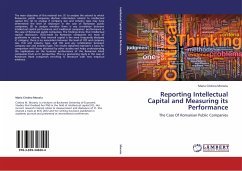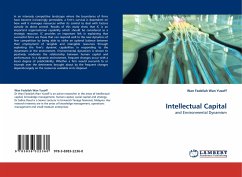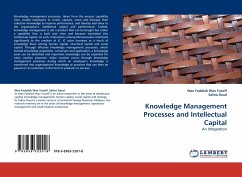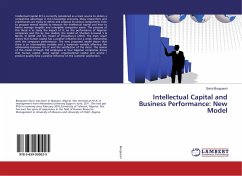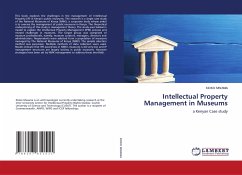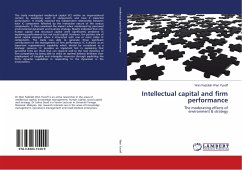
Intellectual capital and firm performance
The moderating effects of environment & strategy
Versandkostenfrei!
Versandfertig in 6-10 Tagen
52,99 €
inkl. MwSt.

PAYBACK Punkte
26 °P sammeln!
This study investigated intellectual capital (IC) within an organisational context by examining each IC components and how it impacted performance. It initially explored the independent relationship between each IC component followed by the interactive nature of the various components. It then examined the impact when moderated by perceived environmental dynamism and business strategy. Results indicated that only human capital and structural capital were significantly predictive in explaining performance but not social capital. However, the positive role of social capital emerged when it inter...
This study investigated intellectual capital (IC) within an organisational context by examining each IC components and how it impacted performance. It initially explored the independent relationship between each IC component followed by the interactive nature of the various components. It then examined the impact when moderated by perceived environmental dynamism and business strategy. Results indicated that only human capital and structural capital were significantly predictive in explaining performance but not social capital. However, the positive role of social capital emerged when it interacted with one or more other IC components. The study was able to generate three significant contributions to the management of firm performance. IC is shown as an important organisational capability which should be considered as a strategic resource. IC provides an important link in explaining that successful firms are those that can respond well to the new dynamics of firm competition by being able to strike an optimal balance between their employment of tangible and intangible resources through exploiting the firm's dynamic capabilities in responding to the dynamism in the environment.



